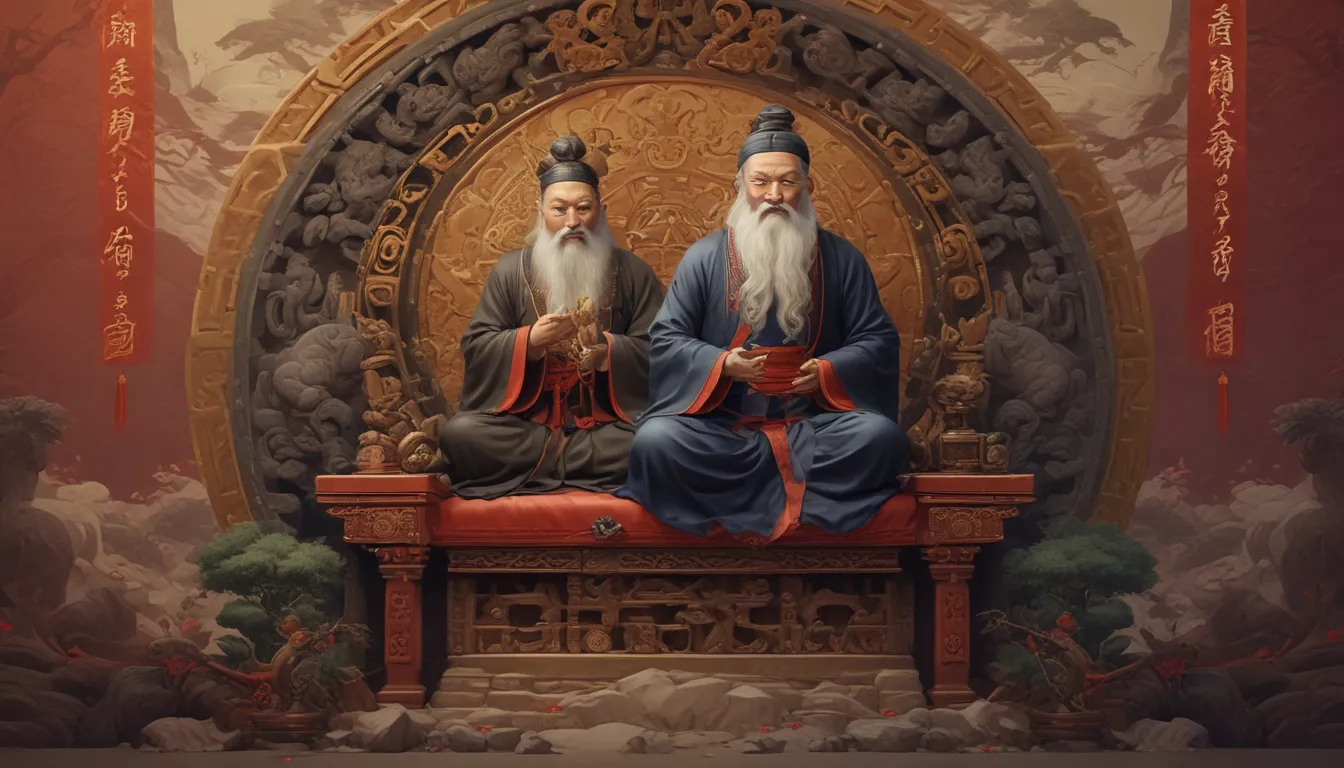The images in our articles may not match the content exactly. They are used to grab your attention, not to show the exact details in the text. The images complement the text but do not replace it.
Confucianism, a profound philosophical and ethical system, has significantly influenced East Asian societies for centuries. Rooted in principles of social harmony, respect for elders, and moral integrity, Confucianism continues to shape cultural values today. In this detailed article, we will delve into the fascinating world of Confucianism, exploring its origins, beliefs, and impact on society through 11 compelling facts.
Ancient Origins of Confucianism
Confucianism traces its roots back to ancient China in the 5th century BCE, attributed to the revered philosopher Confucius, also known as Kong Qiu. Confucius laid the groundwork for this philosophy, which became a guiding light for personal conduct, family relationships, and governance, shaping societal norms and values.
The Analects: Key Text of Confucianism
The Analects, a compilation of Confucius’ teachings and discussions with his disciples, serves as the primary source for understanding Confucianism. This revered text offers valuable insights into various aspects of life, moral conduct, and societal harmony, presenting a blueprint for virtuous living.
The Five Constant Virtues in Confucianism
At the core of Confucianism are the Five Constant Virtues: benevolence, righteousness, propriety, wisdom, and faithfulness. These virtues serve as guiding principles for personal and social behavior, emphasizing moral cultivation and virtuous actions as essential components of a harmonious society.
Emphasis on Filial Piety
Filial piety, a cornerstone of Confucian teachings, underlines the importance of respect and devotion that children should have for their parents and ancestors. This principle strengthens family ties, reinforces the role of the family as the foundation of society, and nurtures harmonious relationships between generations.
The Rectification of Names
Confucius emphasized the significance of accurate naming and precise language in fostering harmonious societal interactions. The Rectification of Names underscores the importance of using names correctly to promote clear communication and mutual understanding within a community.
The Significance of Education in Confucianism
Education holds a paramount position in Confucianism, with Confucius advocating for the transformative power of learning. Education is viewed as a means to cultivate virtues, acquire knowledge, and instill moral values necessary for individuals to fulfill societal roles and contribute positively to the community.
Meritocracy and Social Mobility in Confucianism
Confucianism advocates for a merit-based society, where individuals are recognized and rewarded based on their abilities and virtuous conduct rather than social status or wealth. This principle promotes social mobility, offering opportunities for personal and professional growth to those who demonstrate excellence and virtue.
Influence of Confucianism on East Asian Cultures
Confucianism has profoundly impacted East Asian cultures, particularly in countries like China, Korea, Japan, and Vietnam. Its emphasis on respect, harmony, and hierarchical relationships has shaped social norms, family values, and political structures, influencing various aspects of daily life in these regions.
Integration of Yin-Yang Concept in Confucianism
Confucianism incorporates the Yin-Yang concept from Chinese philosophy, where Yin represents feminine, passive, and dark aspects, and Yang symbolizes masculine, active, and light aspects. Maintaining a balance between Yin and Yang is essential for preserving harmony and equilibrium in all spheres of life.
Advocacy of the Golden Rule in Confucianism
Confucius promoted the Golden Rule, urging individuals to treat others as they would like to be treated themselves. This principle emphasizes empathy, kindness, and ethical behavior, fostering a culture of fairness, respect, and compassion in interpersonal interactions.
Timeless Relevance of Confucianism in the Modern World
Despite its ancient origins, Confucianism remains relevant in the modern world, continuing to influence East Asian societies with its emphasis on moral values, social harmony, and respect for authority. This enduring philosophy serves as a source of inspiration for individuals seeking personal growth and ethical guidance in contemporary times.
Frequently Asked Questions about Confucianism
How does Confucianism compare to other major religions?
Confucianism is often considered a philosophical and ethical system rather than a traditional religion. While it shares some similarities with religions like Buddhism and Taoism, Confucianism places greater emphasis on social relationships, moral conduct, and ethical values than theological beliefs.
Are there specific Confucian rituals or ceremonies?
Confucianism includes rituals and ceremonies marking significant life events such as weddings, funerals, and ancestral worship. These rituals reinforce family bonds, honor ancestors, and uphold social harmony within the community.
Has Confucianism spread beyond East Asia?
Confucianism has primarily impacted East Asian countries like China, Korea, Japan, and Vietnam. However, its principles have garnered global attention in recent years, with scholars and individuals recognizing its potential contributions to ethics, governance, and interpersonal relationships worldwide.
Can one practice Confucianism alongside other religions?
Yes, individuals can integrate Confucian principles into their lives alongside other religious beliefs. The focus on ethical conduct and social harmony in Confucianism allows for its coexistence with diverse religious practices, offering valuable guidance for navigating moral dilemmas and interpersonal relationships.
How has Confucianism adapted to the modern world?
Confucianism has adapted to contemporary challenges by addressing current issues and applying its core values in relevant contexts. Scholars and practitioners have explored ways to implement Confucian teachings in areas like education, business ethics, and governance, ensuring its continued relevance and applicability in today’s dynamic society.
Conclusion
Confucianism stands as a timeless philosophy that continues to captivate scholars and individuals globally, offering profound insights into human nature, ethics, and societal harmony. By exploring the rich cultural heritage and enduring wisdom embedded in Confucianism, we gain a deeper understanding of its impact on East Asian societies and its relevance in the modern world. As we navigate the complexities of today’s society, the values upheld by Confucianism serve as a beacon of moral guidance and social harmony, resonating across cultures and generations.






